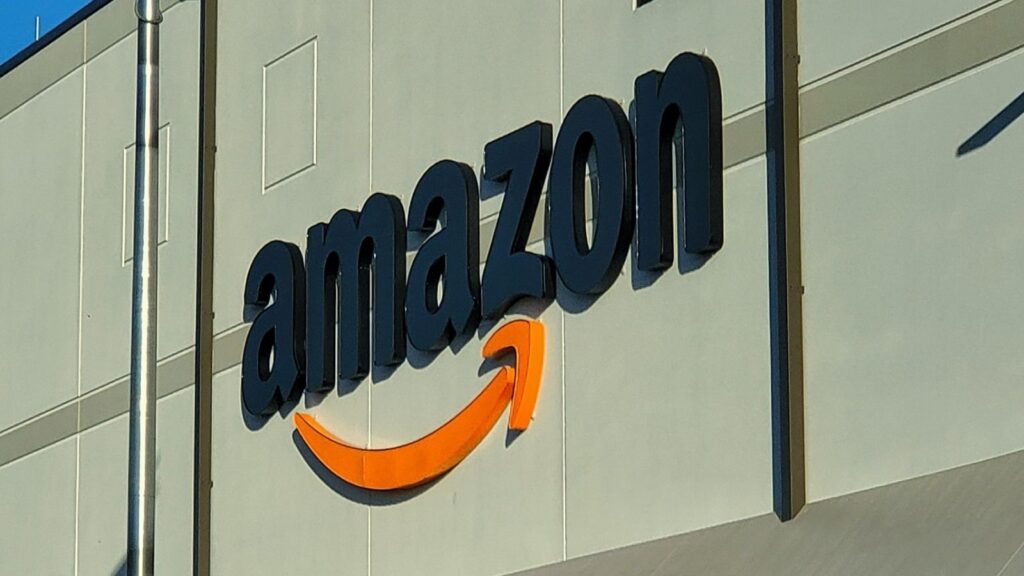Table of Contents
Amazon is the largest company globally by internet revenue. It began from innocuous origins in Washington State and has since expanded across the globe with an Amazon warehouse in almost every country.
What is astonishing about Amazon is that it continues to grow. Between the end of 2019 to the end of 2020, operating cash flow increased by 72%, and this full-steam-ahead growth shows no signs of stopping in 2021.
So, the question is, How did Amazon get to be where it is? Jeff Bezos, Amazon founder, and CEO, regularly speaks about his secrets to success. Amazon’s Leadership Principles are the product of Jeff Bezos’ 20-plus years as being America’s most-sought CEO.
Use this guide for an Amazon leadership principles interview: these 14 leadership principles will guide you through Amazon leadership principles interview answers with insights into each point.
If you’re a business owner, an aspiring leader, or simply someone who wants to manifest success in your life, the Jeff Bezos leadership principles are a great place to start. In this article, we outline the 14 leadership principles Amazon as they apply to business and life.
What Are The Amazon 14 Leadership Principles?
Jeff Bezos’ success speaks for itself, and when he speaks of business, the world listens. If you haven’t already seen Amazon’s leadership principles, you’re in for a treat. These principles immediately read as true. We see honest introspection revealed in each of the fourteen points.
According to Jeff Bezos, the first two points of the 14 leadership skills that shape company culture.

Amazon Leadership Principles Explained
Want some Amazon leadership principles with examples? Read along as we break down each point of Amazon’s leadership principles below.
1. Customer Obsession
Jeff Bezos places customer obsession at the very front of his 14 leadership principles. For him, this first point needs to run through everything the entire company does
When leaders pay attention to their customer’s needs, a company grows, however, a company that is competitor-focused is reactive rather than innovative. They respond to trends already extant in the marketplace. A customer-obsessed company has ears on the ground and is listening for how the customer experience can change. When a customer experience is good then you are assured people will come back for more.
Another good example of customer-obsession leaders and companies is Steve Jobs’ Apple that saw innovation after innovation in computer software, mobile phones, music listening, and more. How was one company able to be so central to innovation and come up with hit after hit? It’s because they made the decision to follow the customer obsession way of leading.
Disagreements do happen but once a decision is made, teams should commit to the course, and deliver results. Leaders focus on key inputs in businesses for them to deliver quality to their customers
2. Ownership
At Amazon, a leader is someone who owns the work that they do.
To understand this better, think of a start-up. Let’s say it’s based in San Francisco. It’s a brand new company, and the CEO is also the main coder and the person who came up with the idea for the company. To say that this person is committed to their company’s success would be an understatement. They will do anything to ensure the success of their company.
For Amazon, true leaders are just as committed to the success of their company as this earnest CEO. They are committed to their work beyond the limits of a job description. Someone who owns their work, for example, never says, “that’s not my job.”
A leader is someone who acts with the whole company in mind, not just their team. A leader understands their actions in terms of the scope of the entire company: they are success-minded, but with the company’s success at the forefront — not themselves.
3. Invent and Simplify
Leaders act on behalf of a company as they pay attention to their competitors and thus the need to invent and simplify is deep. Leaders expect inventions, innovations, and a lot more from their teams. This Amazon Leadership Principle may seem to be two separate directives for leaders. However, if you give this some thought, you’ll see that “inventing” and “simplifying” are actually two sides of the same coin.
You need to ask yourself, “what are inventions for in the first place?” From time immemorial, the reason human beings have invented is to simplify their lives. The ancient people invented the wheel to make carrying things and building things easier.
A leader, likewise, is constantly looking for new ways to simplify their workflow, Require innovation from the team, invent a new way to do something, recognize exceptional talent, and move them up the ladder while guiding them.

4. Are Right, A Lot
Leaders are right a lot, and this isn’t subjective. It’s objective. How? A leader is someone who is continually working to, in the words of Amazon, “disconfirm their beliefs.” By living a lifestyle of self-challenging, and taking bold direction. A leader naturally begins to get to the heart of things. In other words, the fact that good leaders are right a lot is no accident of genes or circumstance.
A leader is right a lot because they have chosen to live their life in a self-inquisitive way. This may cause them to communicate a bold direction that is bound to deliver high-quality products.
Jeff Bezos tells us that being right is something to practice. According to Bezos, those leaders who are right a lot are used to changing their minds often about things. They aren’t stuck in their ways; they’re adaptable and open to what’s right.
5. Learn and Be Curious
Running throughout Amazon’s leadership principles is the idea that a leader is a dynamic individual capable of change, a person who is more interested in finding the truth of things than defending their own ego.
A good leader is constantly in the position of seeking: they are seeking advice, learning better practices for their job, and, above and beyond everything, they are simply curious leaders.
A leader asks questions more often than they give answers. A good leader should seek to earn customer trust by making inquiries on how they can do better.
6. Hire and Develop the Best
As Steve Jobs once said, “it doesn’t make sense to hire smart people and tell them what to do.” The reason anyone hires anyone, according to Jobs and Bezos, is to add new creativity to the workplace. A good leader has an eye and an ear for the best people and, upon hiring them, dares to let them fly.
A good leader is also selfless enough to recognize exceptionality in others and is willing to make the decision to move them up through the organization.
The last point is also critical: good leaders develop the best. They are serious about coaching new talent as a part of their job. As the Tao De Ching puts it, “what is a bad man but a good man’s job?”
when you hire and deploy the best, you will deliver high-quality products to your customers. The best teams will come up with new ideas that will propel your company forward.

7. Insist On the Highest Standards
A leader is constantly pushing their team, their product, and their company to improve. There’s a reason here why Amazon doesn’t write, “insist on high standards.” because A good leader continually expects more and more from a capable team by raising the performance bar.
You have to be strict when it comes to standards and see yourself as the goalie between a quality product and the company’s failure. If Jeff Bezos would not have insisted on quality, then kindle would not have been the best e-books device it is now.
leaders raise high standards, like every other point in the Amazon Leadership Principles, is teachable. Jeff Bezos tells us that insisting on high standards is actually contagious: when the leader has an infectious desire for quality, this will naturally permeate down through the organizational chain.
8. Think Big
To “think big” is almost cliché in the business world. But what does it mean? It is daring yourself to ascend the mountain by doing an extensive study of your market. To commit wholly and not be comfortable in your current status quo. Think of increasing the long-term value of your product.
If Mark Zuckerberg had been satisfied with an exclusively Ivy League socialization website, where would he be now? That Facebook is so deeply entrenched in our lives is proof of the meaning of “thinking big.”

9. Bias For Action
Don’t worry about the problem: work on the problem. ” A bias for action is, in essence, surrendering to the forces of the world. It’s an openness in which the leader agrees to collaborate with chance and trust their own intuition.
Indeed, almost every mistake is reversible. What’s not reversible is dawdling away your company’s time while another company develops products and extends its reach.
We all can think of personal examples when we have witnessed a company whose product is terrible, whose organization is shoddy, and who nevertheless has some real success. Why does this company have success? The simple reason is their bias for action.
Despite having an inferior product, a now tech giant company decided to put itself out there and see what they could do. This bias for action has brought them into the marketplace, where it’s better to have something than nothing.
10. Frugality
As Nietzsche tells us, “we must learn to conserve ourselves.” This applies just as well to business. According to Bezos, a good leader isn’t interested in extra employees or a larger budget for its own sake. A good leader is interested in streamlining and efficiency.
To Bezos, constraints are positives that aid in creativity. We need only look to the arts to confirm this: poems are written to meter for the very reason that the constraints put upon the piece of art improve the artist’s creativity. Perhaps frugality is not a necessity, it is the mother of invention.
11. Earn Trust
At the core of earning trust is a leader’s deeply internalized interpersonal skills. A good leader doesn’t employ any smoke and mirrors in the way they present themselves. They talk candidly, respect their team just as much as their competition, and aren’t in the habit of fooling themselves. Social cohesion between employees and employers leads to the success of companies.
Earning trust is about having a strong sense of realism: a leader can be openly self-critical, and they don’t hide their team behind illusions of self-grandeur. We are who we are, the leader says: we make mistakes, but when we do, we correct them and move on.

12. Dive Deep
Diving deep in leadership is the leader’s ability to take in the large and the small all at once. While being a big-picture thinker, a leader is also interested in the small things, in the little details. Bezos tells us that no task is too small for a leader, and this is essentially what “diving deep” is all about.
A good leader audits often and compares metrics with anecdotes. If the two differ, the leader is skeptical and might go into the details to check the situation out for themselves.
13. Have Backbone; Disagree and Commit
This penultimate point is an extremely important staple to the Amazon Leadership Principles. A good leader is, first of all, committed to their opinions. They make a choice and unabashedly own it. In this sense, the 13th point is connected to the 2nd point.
More than a leader’s commitment to their decisions, however, is their ability to stand by their decisions. When faced with opposition, whether in-company or out, a leader shows true backbone. They don’t mind disagreeing because they know the only thing that can be made better by disagreement is the product. Conflict is an excellent source of innovation.
It’s easy to stand by your opinion when an inferior disagrees. But what about a colleague or superior? What about shareholders? It is in the most difficult positions that a good leader will defend what they see as the better opinion. Good ideas can come from everywhere.
14. Deliver Results
The last of the leadership principles is that a good leader needs to deliver results in a timely manner. A good leader will face setbacks. Their good ideas will turn out bad, the marketplace will change abruptly, and none of this will affect the good leader. A good leader is always adapting, always keeping their eyes open, and always pushing to achieve.
Where do results come from? The onus for results ostensibly falls upon the leader’s employees. However, a good leader’s never-tired attitude is the very thing that allows them to deliver results consistently. Leaders can always push teams in a positive direction to achieve more. Once again, having high standards is contagious. When you treat your employees well, they will serve customers well

The 2 New Leadership Principles as updated by Jeff Bezos(2021).
As Jeff Bezos retired on July 5th, 2021 from being Amazon’s CEO to being the senior executive chairman of the Amazon board, he added 2 principles onto the famous Amazon 14 leadership principles to make it the Amazon 16 leadership principles.
So what are the 2 added leadership principles by Amazon founder, Jeff Bezos? Read on for the updates.
1. Be Earth’s Best Employer.
The first added leadership principle reads, “Leaders work every day to create a safer, more productive, higher-performing, more diverse, and more just work environment. They lead with empathy, have fun at work, and make it easy for others to have fun. Leaders ask themselves: Are my fellow employees growing? Are they empowered? Are they ready for what’s next? Leaders have a vision for and commitment to their employees’ personal success, whether that be at Amazon or elsewhere.”
It is no secret that amazon employees are some of the best-paid employees in the world and with exceptional talent. With every increase in revenue that Amazon faces, amazon workers, face a pay increase regardless of the amazon warehouse location they are situated. They are also trained and developed to best fit in the ever-changing tech world. Good leaders treat their employees well.
Quick fact- Did you know that Amazon revenue of 2020 amounted to 386.06 billion US dollars?
2. Success and Scale Bring Broad Responsibility.
The second added leadership principle reads, “We started in a garage, but we’re not there anymore. We are big, we impact the world, and we are far from perfect. We must be humble and thoughtful about even the secondary effects of our actions. Our local communities, planet, and future generations need us to be better every day. We must begin each day with a determination to make better, do better, and be better for our customers, our employees, our partners, and the world at large. And we must end every day knowing we can do even more tomorrow. Leaders create more than they consume and always leave things better than how they found them.”
Amazon has become the e-commerce giant due to its scale in operations. It has faced competition from tech companies such as Apple and other companies such as Facebook and Twitter but amazon’s culture still wins. Leaders with diverse perspectives on how to operate their firms will perform well and bear fruits by becoming a large company in no time.
Conclusion
If you want to have strong leadership principles like Jeff Bezos, you need to put the needs of your customers first. This will help you seek diverse perspectives in the business world. In cases of misunderstandings, respectfully challenge decisions.






